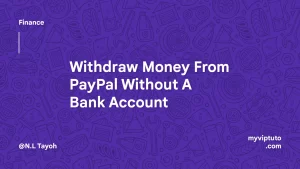
Nowadays, as website speed and performance have become critical factors in SEO, you can choose to Speed Up Your Site With a Content Delivery Network alongside caching. Slow-loading websites not only result in a poor user experience and can also lead to a loss of revenue, decreased search engine rankings, and decreased website traffic. A CDN is a network of servers distributed across the globe that helps to speed up the delivery of content from a website to its users. In this article, we will explore how a CDN works, its benefits, and how to choose and implement a CDN for your website.
How a CDN Works
A CDN works by distributing your website’s content across a network of servers located in different geographic locations. When a user requests content from your website, the CDN will determine the user’s location and serve the content from the server closest to them. This helps to reduce the distance that the content has to travel, resulting in faster load times for the user.
In more detail, here’s how a CDN works:
- When a user requests content from your website, their request is routed to the nearest CDN server, which is called an edge server.
- The edge server checks to see if it has the requested content in its cache. If it does, it delivers the content to the user.
- If the edge server doesn’t have the requested content in its cache, it retrieves the content from your website’s origin server.
- Once the edge server has retrieved the content, it stores a copy of the content in its cache. This helps to speed up the delivery of the content to future users who request it.
- The edge server delivers the content to the user, and the user’s browser displays the content.
By caching content and delivering it from the server closest to the user, a CDN helps to reduce the load on your origin server and improve website speed and performance.
Benefits of Using a CDN
Using a CDN provides several benefits for website owners and users. Here are some of the main benefits:
- Improved website speed and performance: By delivering content from a server closest to the user, a CDN helps to reduce the time it takes for content to load, resulting in faster website speed and performance.
- Better user experience: Faster website speed and performance leads to a better user experience, which can lead to increased engagement and customer satisfaction.
- Increased website availability: A CDN can help to distribute the load on your website across multiple servers, reducing the risk of your website crashing due to high traffic.
- Improved website security: A CDN can also help to protect your website from DDoS attacks and other security threats by distributing traffic across multiple servers.
So, using a CDN can help to improve website speed and performance, provide a better user experience, increase website availability, and improve website security.
Factors to Consider When Choosing a CDN Provider
When choosing a CDN provider, there are several factors to consider to ensure that you choose the right provider for your website. Here are some of the main factors to consider:
- Network Coverage: You should choose a CDN provider with a large network of servers located in different geographic locations to ensure that your website’s content can be delivered quickly to users across the globe.
- Performance and reliability: You want to choose a CDN provider with a strong track record of performance and reliability to ensure that your website’s content is always available to users.
- Cost: CDN pricing can vary widely depending on the provider, so you’ll want to consider the cost of the service and how it fits into your budget.
- Security: You’ll want to choose a CDN provider that offers robust security features to protect your website from DDoS attacks and other security threats.
- Customer support: Finally, you’ll want to choose a CDN provider with responsive and helpful customer support to ensure that any issues or questions are quickly resolved.
By considering these factors when choosing a CDN provider, you can ensure that you select a provider that meets your website’s needs and provides the best value for your budget.
Some recommended CDN Providers
There are many CDN (Content Delivery Network) providers available in the market, each with its own strengths and weaknesses. Here are some popular CDN providers:
1. Cloudflare
Cloudflare is a popular CDN provider that specializes in security and performance optimization. One of the primary features of Cloudflare is its ability to provide DDoS (Distributed Denial of Service) protection, which helps prevent attacks on your website or web application by distributing traffic across multiple servers and filtering out malicious traffic. Cloudflare also provides SSL/TLS encryption to ensure that data transferred between the client and server is secure.
In addition to security features, Cloudflare also offers a range of performance optimization tools, including CDN caching. This feature helps reduce load times by caching frequently accessed content on servers located closer to the user. Cloudflare’s CDN caching also includes HTTP/2 support, which can help improve website performance by reducing latency and improving server push.
Another benefit of Cloudflare is its analytics tools, which provide real-time insights into website performance, traffic patterns, and security threats. Cloudflare also offers a range of add-on services, including a web application firewall, load balancing, and serverless computing.
Cloudflare’s pricing is competitive, with a free plan available that includes basic security features and CDN caching. Higher-tier plans offer additional features such as advanced security and support, starting at $20 per month. Overall, Cloudflare is a solid choice for organizations looking for a CDN provider with strong security and performance optimization features.
Cons
- The free plan comes with limited features
- You’ll have to upgrade to their paid plans to use their chat or phone support
- Since the free plan offers limited security features, your website may not be secure from DDoS attacks, malware, and spam
2. Akamai
Akamai is one of the oldest and most established CDN providers, having been founded in 1998. It is also one of the largest, with over 300,000 servers in more than 135 countries. Akamai offers a wide range of services, including web performance optimization, security, and media delivery.
One of the primary benefits of Akamai is its ability to improve website performance by reducing latency and improving page load times. This is achieved through a range of performance optimization features, including caching, compression, and image optimization. Akamai also offers real-time analytics and reporting, which can help website owners identify performance issues and make improvements.
Akamai is also known for its strong security features, which include DDoS protection, web application firewall, and SSL/TLS encryption. Akamai’s security features are designed to protect against a wide range of threats, including malware, bots, and other types of attacks.
In addition to performance and security features, Akamai also offers a range of services specifically designed for media delivery. These services include adaptive bit-rate streaming, video delivery optimization, and global traffic management.
Akamai’s pricing is generally higher than other CDN providers, reflecting its reputation as an enterprise-level provider. However, the company offers a range of pricing options and plans, including a pay-as-you-go option, to suit the needs of businesses of all sizes.
Cons
While Akamai is a leading CDN provider with a wide range of features and benefits, there are also some potential drawbacks to consider:
- Cost: Akamai is known for its high prices, which may be prohibitively expensive for small and medium-sized businesses. Its pricing structure is also complex and may be difficult to understand for some users.
- Complexity: Akamai’s platform can be complex and difficult to configure for some users. It may require technical expertise to get the most out of the platform, which may be a challenge for organizations without dedicated IT resources.
- Support: While Akamai offers comprehensive support and documentation, some users have reported that their support response times can be slow.
- Reliance on Akamai: Since Akamai is one of the largest CDN providers, it is a popular choice for many businesses. This means that a significant portion of internet traffic is routed through Akamai’s servers, which may lead to concerns about over-reliance on a single provider.
- Limited customization: Some users have reported that Akamai’s platform can be restrictive when it comes to customization and configuration options, which may limit flexibility for some organizations.
3. Speed Up Your Site With a Content Delivery Network by Amazon CloudFront
Amazon CloudFront is a popular CDN provider offered by Amazon Web Services (AWS), one of the leading cloud computing providers in the world. CloudFront is designed to help businesses deliver content, videos, and APIs to users all around the world with low latency and high transfer speeds.
One of the primary benefits of CloudFront is its integration with other AWS services, such as Amazon S3, Amazon EC2, and AWS Lambda. This integration allows businesses to easily distribute content from these services to users around the world through CloudFront’s global network of edge locations.
CloudFront offers a range of performance optimization features, including caching, compression, and dynamic content delivery. It also offers real-time analytics and reporting, which can help website owners identify performance issues and make improvements.
CloudFront is also known for its strong security features, which include DDoS protection, web application firewall, and SSL/TLS encryption. It also offers integration with AWS Identity and Access Management (IAM), which allows businesses to manage user access to content and APIs delivered through CloudFront.
One of the main benefits of CloudFront is its flexible pricing structure. It offers pay-as-you-go pricing, which allows businesses to pay only for the data transfer and requests they use, without any upfront costs or long-term commitments. This makes it an attractive option for businesses of all sizes, including startups and small businesses.
Promoted contents:
- Who is the founder of BBC?
- Toshiba Corporation: Who is the founder of Toshiba?
- Google Releases Android 14 Beta 3, With Platform Stability and New Features
- Who founded Nokia? Here is all you need to know
- Who is the founder of HTC Corporation?
- Fast Charging and Multiple Variants: Samsung’s Galaxy Tab S9+ and Tab S9 Ultra Unveiled
- Who is the founder of Realme?
- The Mobvoi TicWatch 5 Pro has been launched
- Rumours of the Galaxy S23 FE: A budget-friendly variant of the Galaxy S23
- The upcoming iOS 17 will add the ability to use your locked iPhone as a smart display
However, some potential drawbacks of CloudFront include its complex pricing structure and limited customization options. Additionally, some users have reported that the CloudFront management console can be difficult to use and may require technical expertise to get the most out of the platform.
Amazon CloudFront thus is a powerful and reliable CDN provider that is well-suited for businesses of all sizes, particularly those that are already using AWS services. Its flexible pricing structure and strong performance and security features make it a popular choice for many organizations.
cons
- Complex pricing structure: Some users may find CloudFront’s pricing structure to be complex and difficult to understand, particularly if they are new to AWS services.
- Limited customization options: CloudFront offers a range of features and options, but some users have reported that it can be restrictive when it comes to customization and configuration options. This may limit flexibility for some organizations.
- Requires technical expertise: Like many AWS services, CloudFront can be complex and may require technical expertise to get the most out of the platform. This may be a challenge for organizations without dedicated IT resources.
- Lack of support for some features: While CloudFront offers a wide range of features, it may not support all of the features and protocols required by some applications and use cases.
- Reliance on AWS: Since CloudFront is an AWS service, businesses that rely heavily on CloudFront may become overly reliant on AWS. This may be a concern for organizations that prefer to use multiple vendors to reduce their dependence on any one provider.
4. Fastly (https://www.fastly.com/products/cdn)

Fastly is a CDN provider that specializes in high-speed content delivery and real-time content delivery network services. Fastly’s CDN platform is designed to help businesses deliver content, videos, and APIs to users all around the world with low latency and high transfer speeds.
One of the key benefits of Fastly is its edge cloud platform, which allows businesses to build and deploy custom applications and services at the edge of the network. This provides businesses with greater flexibility and control over their content delivery and allows them to respond quickly to changing user needs and demands.
Fastly’s platform also offers a range of performance optimization features, including real-time analytics and reporting, caching, and compression. It also offers a powerful image optimization engine that can help businesses reduce the size of images and improve website performance.
Fastly is known for its strong security features, which include DDoS protection, web application firewall, and SSL/TLS encryption. It also offers integration with third-party security solutions, such as Cloudflare and Akamai, to provide businesses with an additional layer of security.
One of the main benefits of Fastly is its flexible pricing structure. It offers pay-as-you-go pricing, which allows businesses to pay only for the data transfer and requests they use, without any upfront costs or long-term commitments. This makes it an attractive option for businesses of all sizes, including startups and small businesses.
However, some potential drawbacks of Fastly include its relatively high pricing compared to other CDN providers and its limited support for some features and protocols. Additionally, some users have reported that Fastly’s platform can be complex and may require technical expertise to get the most out of the platform.
5. StackPath

StackPath is a CDN provider that offers a range of content delivery and security solutions designed to help businesses deliver content, videos, and APIs to users all around the world with low latency and high transfer speeds.
One of the key benefits of StackPath is its integrated suite of content delivery and security solutions, which includes CDN, web application firewall, DDoS protection, and bot management. This integrated approach allows businesses to manage their content delivery and security needs through a single platform, simplifying management and reducing costs.
StackPath’s platform also offers a range of performance optimization features, including caching, compression, and dynamic content delivery. It also offers real-time analytics and reporting, which can help website owners identify performance issues and make improvements.
StackPath is known for its strong security features, which include DDoS protection, web application firewall, and SSL/TLS encryption. It also offers a range of advanced security features, such as threat intelligence and security incident response, which can help businesses respond quickly to security threats.
One of the main benefits of StackPath is its flexible pricing structure. It offers a range of pricing plans to suit businesses of all sizes, including pay-as-you-go pricing and enterprise plans with custom pricing and dedicated support. This makes it an attractive option for businesses with varying needs and budgets.
However, some potential drawbacks of StackPath include its limited support for some features and protocols, and its relatively limited global network of edge locations compared to some other CDN providers. Additionally, some users have reported that StackPath’s management console can be difficult to use and may require technical expertise to get the most out of the platform.
StackPath is, therefore, a powerful and reliable CDN provider that is well-suited for businesses that require a comprehensive content delivery and security solution. Its integrated suite of solutions and flexible pricing options make it a popular choice for many organizations, particularly those that prioritize security and simplicity.
6. Sucuri CDN

Sucuri CDN is a content delivery network provided by Sucuri Inc., a cybersecurity company that offers website security and performance solutions. The Sucuri CDN provides a distributed network of servers located in various geographic locations around the world, which work together to deliver content to end-users with the fastest possible speed and reliability.
By using the Sucuri CDN, website owners can offload their website’s static content (such as images, CSS files, and JavaScript files) to Sucuri’s servers, reducing the load on their own web servers and improving website performance. In addition, the Sucuri CDN also provides security features such as DDoS protection, web application firewall (WAF), and malware scanning, which can help protect websites from various online threats.
What Types of Sites Need a CDN?
Content Delivery Networks (CDNs) are designed to improve website performance by caching and delivering content from servers that are geographically closer to the user. CDNs are useful for any website that has a global audience or experiences high traffic volumes, as they can help to reduce load times and improve the user experience. Here are some types of sites that would benefit from using a CDN:
- E-commerce sites: Online stores that sell products or services can benefit from a CDN by reducing page load times and improving the overall user experience.
- Media streaming sites: Sites that stream music, videos, or other media content can benefit from a CDN to reduce buffering times and improve playback performance.
- News and media sites: Websites that publish news articles, images, and videos can benefit from a CDN to deliver content quickly and efficiently to users around the world.
- Gaming sites: Sites that offer online gaming can benefit from a CDN by reducing lag times and improving the user experience for players.
- Social media sites: Social media platforms that serve millions of users around the world can benefit from a CDN to deliver content quickly and improve the overall user experience.
- Educational sites: Online learning platforms that serve students and educators around the world can benefit from a CDN by improving the speed and reliability of content delivery.
Based on the above-mentioned points, one can conclude that any website that has a global audience or experiences high traffic volumes can benefit from using a CDN to improve website performance, reduce load times, and enhance the user experience.
Optimizing Your Site With a CDN
A Content Delivery Network (CDN) is a network of servers distributed across the globe that work together to deliver web content to users from the server closest to their location. By using a CDN, you can significantly improve the performance and speed of your website, particularly for users who are geographically far from your web server.
Here are some tips for optimizing your site with a CDN:
- Choose a reliable CDN provider: There are many CDN providers available in the market, so it’s essential to choose a reliable and reputable one that can offer good performance and support.
- Cache static content: By caching your website’s static content, such as images, CSS, and JavaScript files, you can reduce the number of requests sent to your origin server and improve page load times.
- Use a multi-CDN approach: Using multiple CDNs can improve redundancy and uptime, and help you to avoid vendor lock-in.
- Optimize for mobile devices: Make sure your website is optimized for mobile devices and delivers content quickly to mobile users. CDN caching can help here as well, as mobile devices often have slower connections than desktops.
- Monitor performance: Keep track of your website’s performance and make adjustments as needed to ensure that your site is always delivering content quickly and reliably.
Using a CDN will therefore significantly improve the performance and speed of your website. By choosing a reliable provider, caching static content, using a multi-CDN approach, optimizing for mobile devices, and monitoring performance, you can ensure that your site is always delivering content quickly and reliably to your users.
Conclusion
In conclusion, a Content Delivery Network (CDN) is a crucial component for website performance optimization, delivering content to users faster and more reliably. CDNs work by caching website content on multiple servers distributed across the globe, reducing the distance and time it takes for content to reach users. The benefits of using a CDN include faster website loading times, improved website uptime, better user experience, increased website security, and cost savings. Large websites with high traffic, websites with a global audience, e-commerce websites, and media and entertainment websites are some examples of sites that can benefit from using a CDN. When selecting a CDN, it is important to evaluate your website needs and compare pricing models. Optimizing your site with a CDN involves setting it up, following best practices, and measuring performance. CDNs are expected to continue playing a critical role in website performance optimization, as the internet becomes increasingly important in business and personal interactions.








